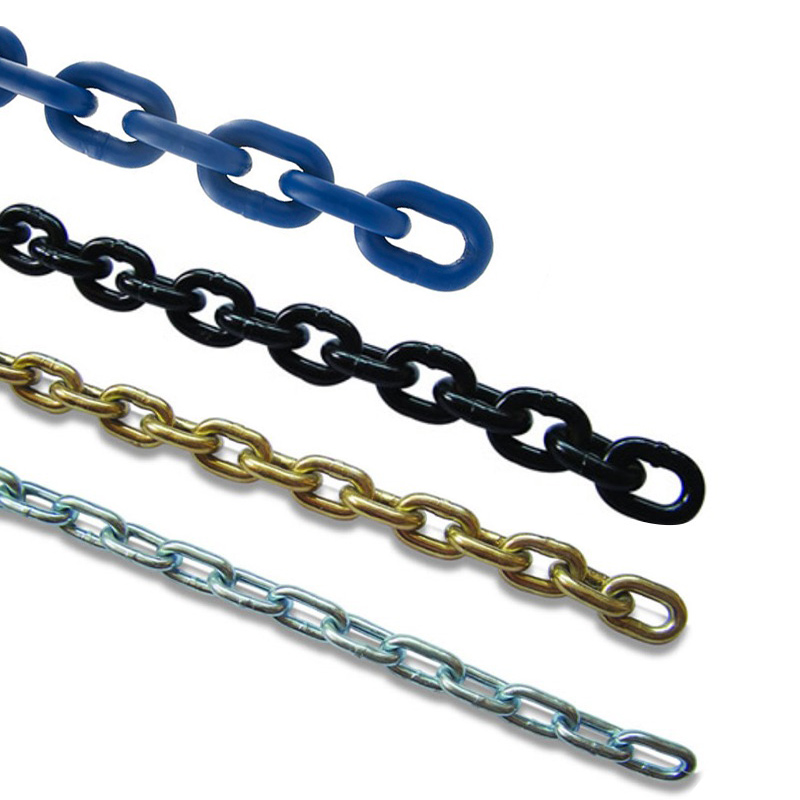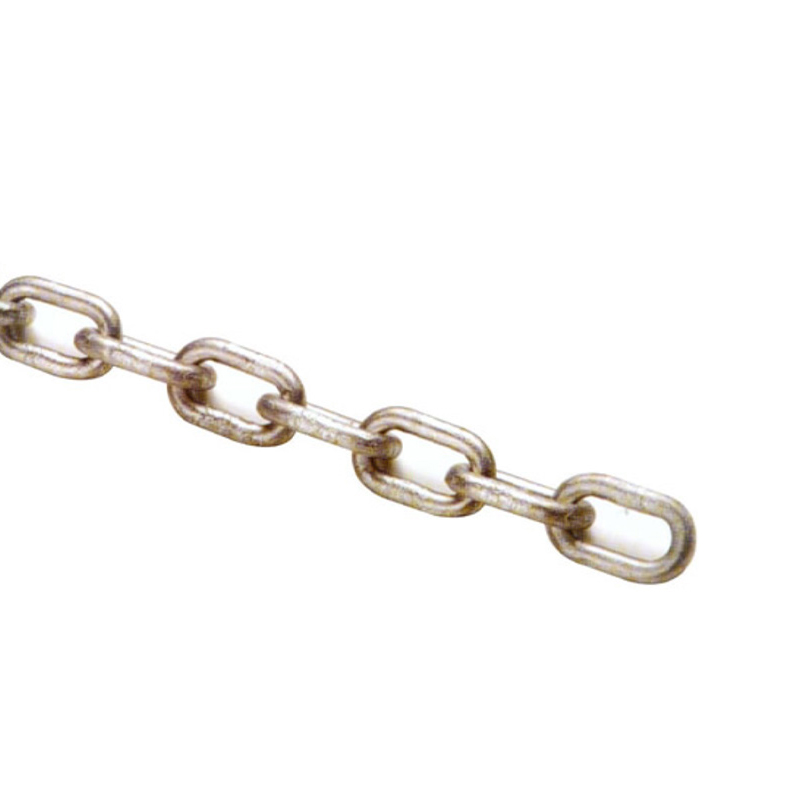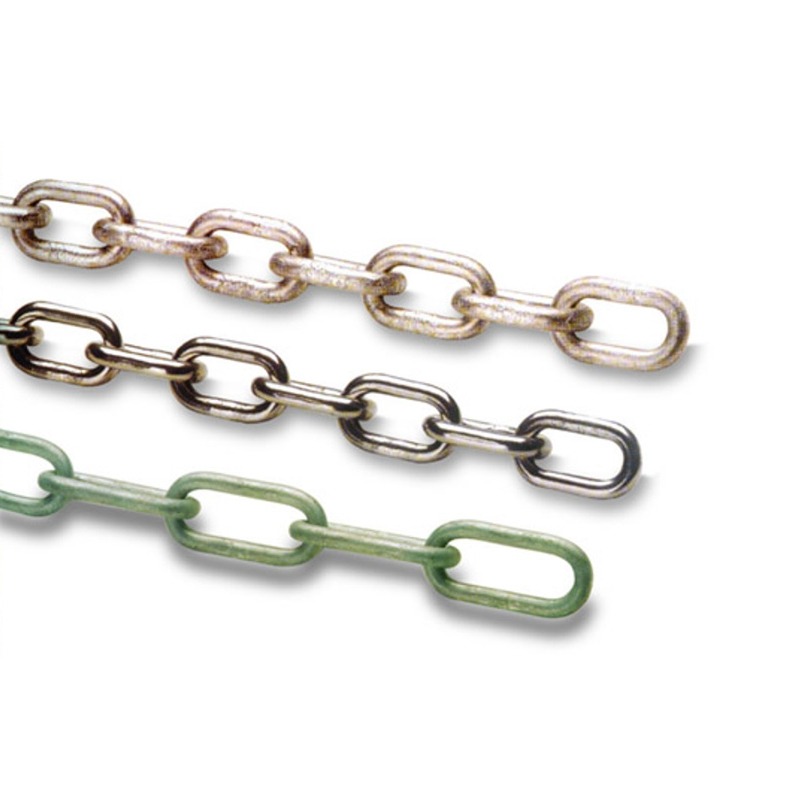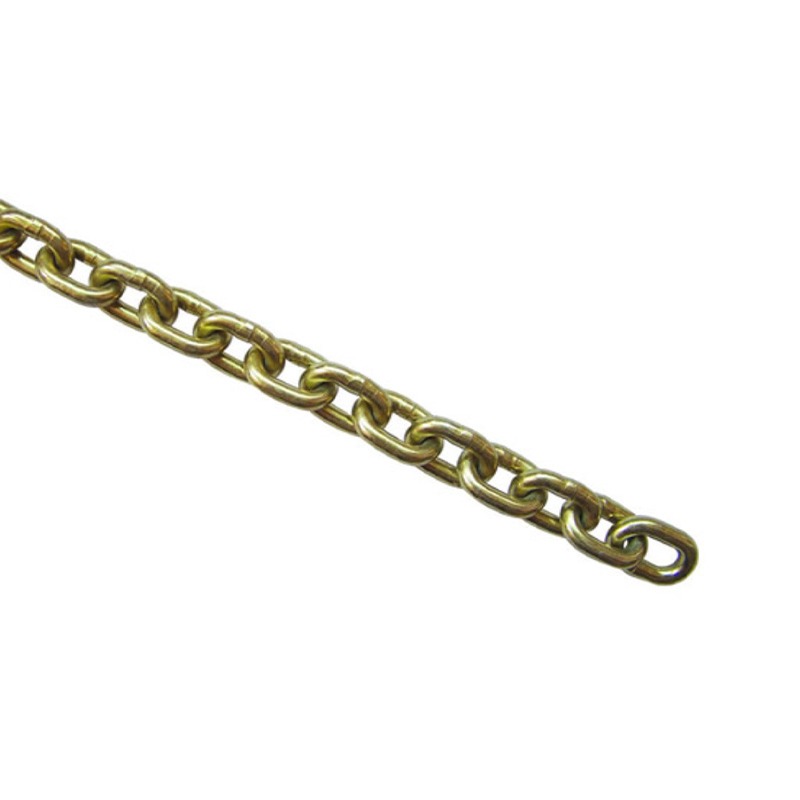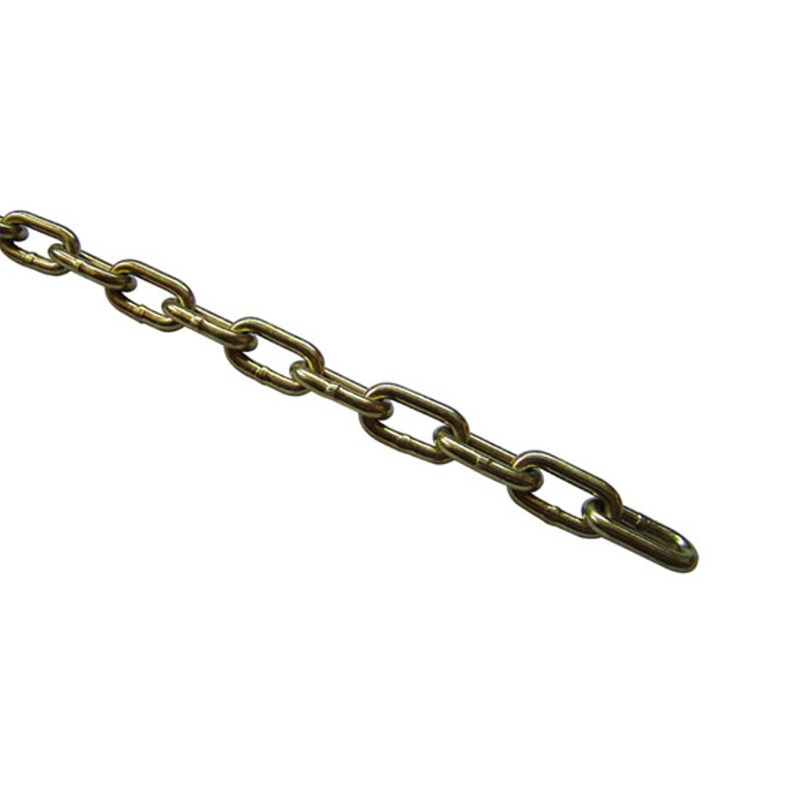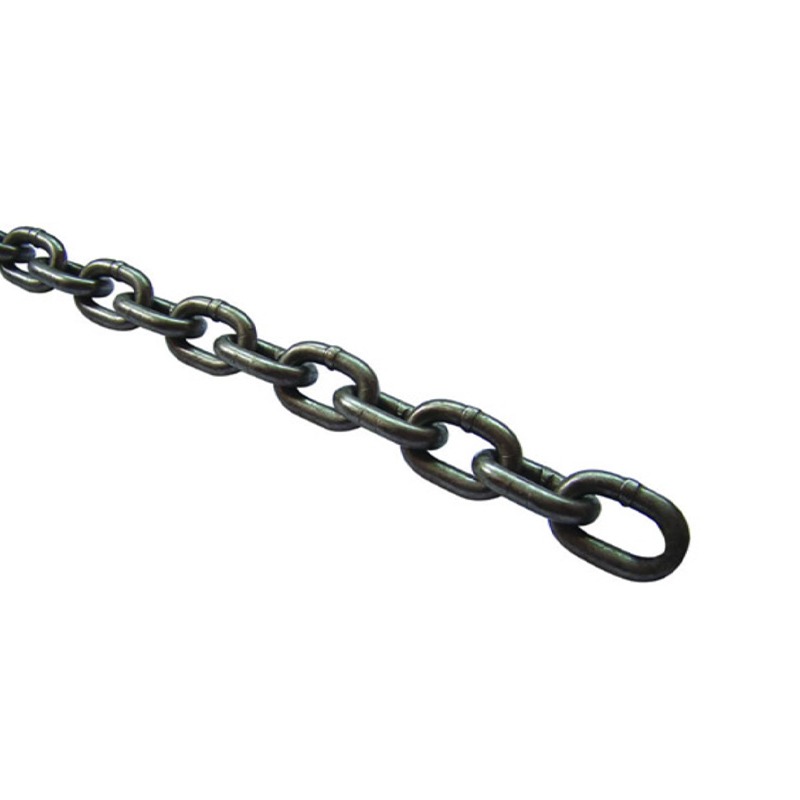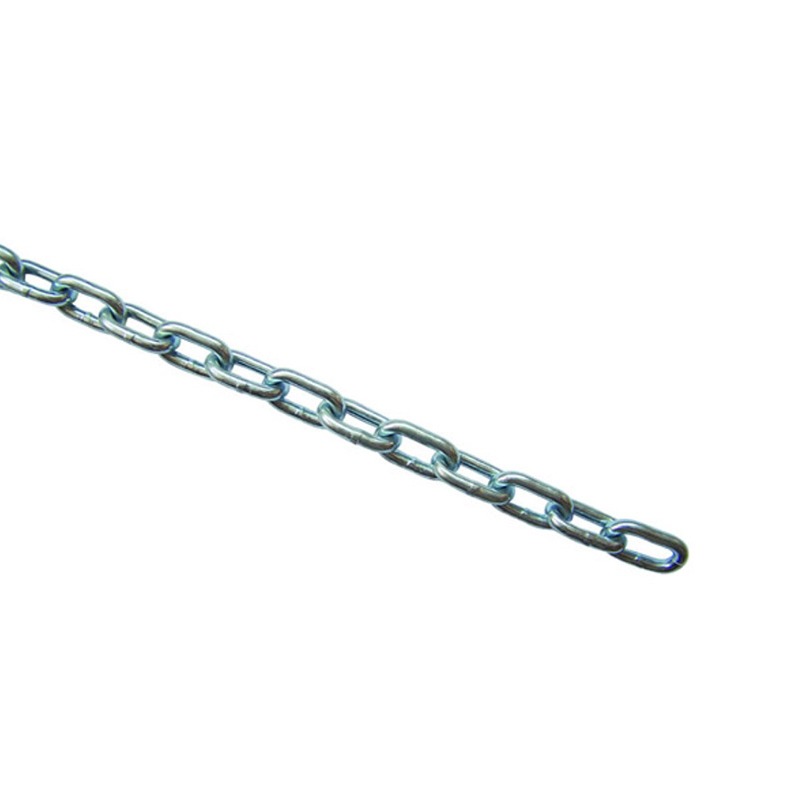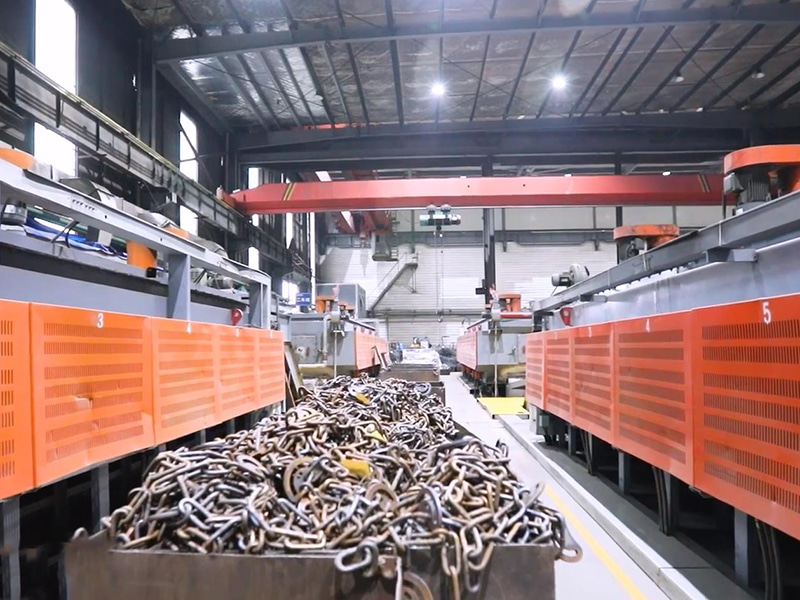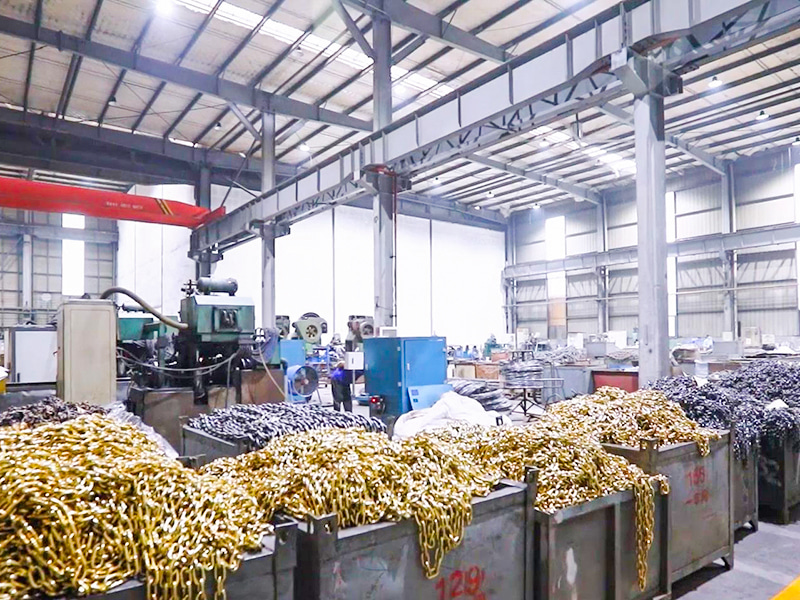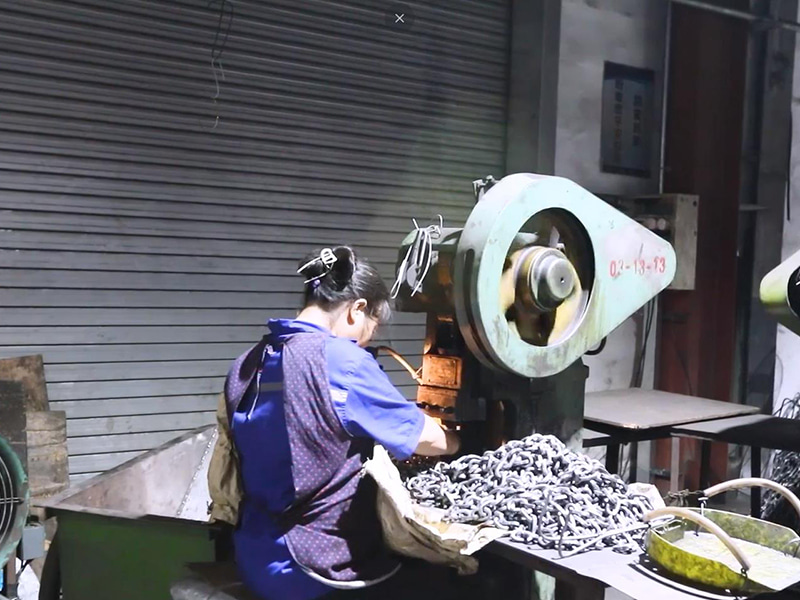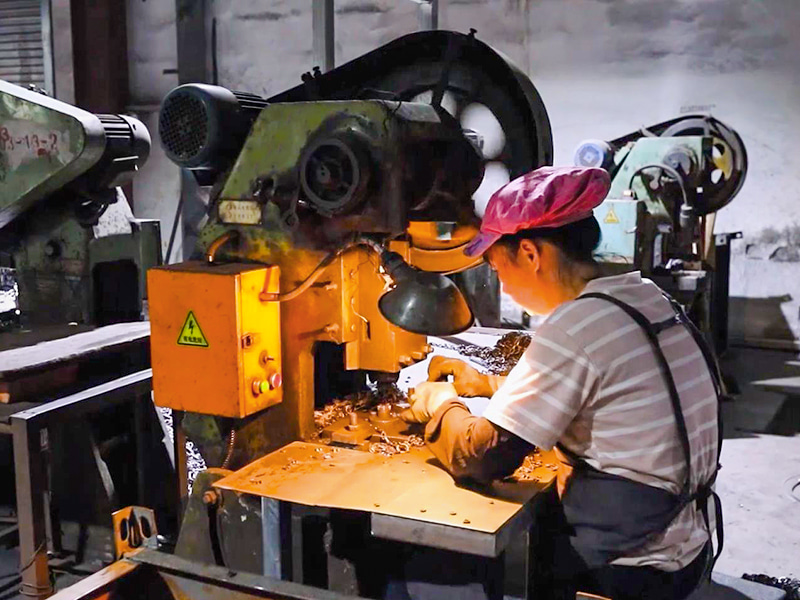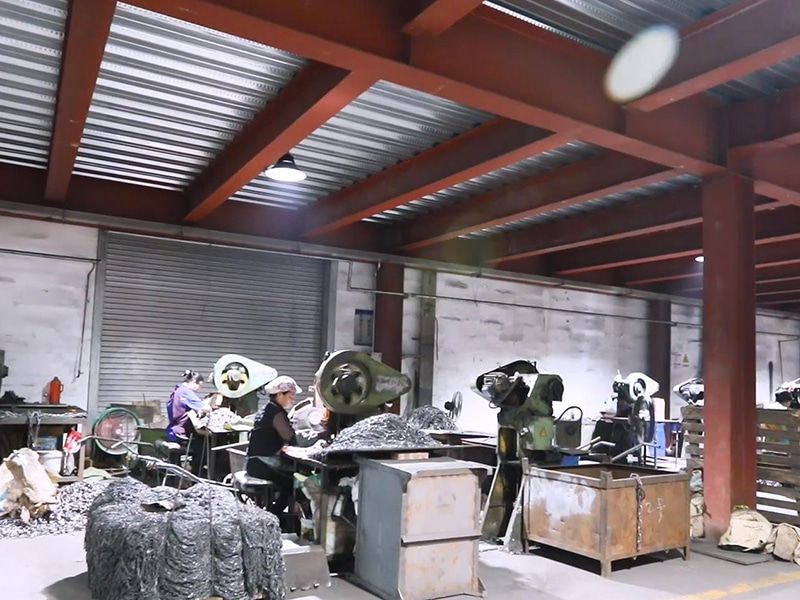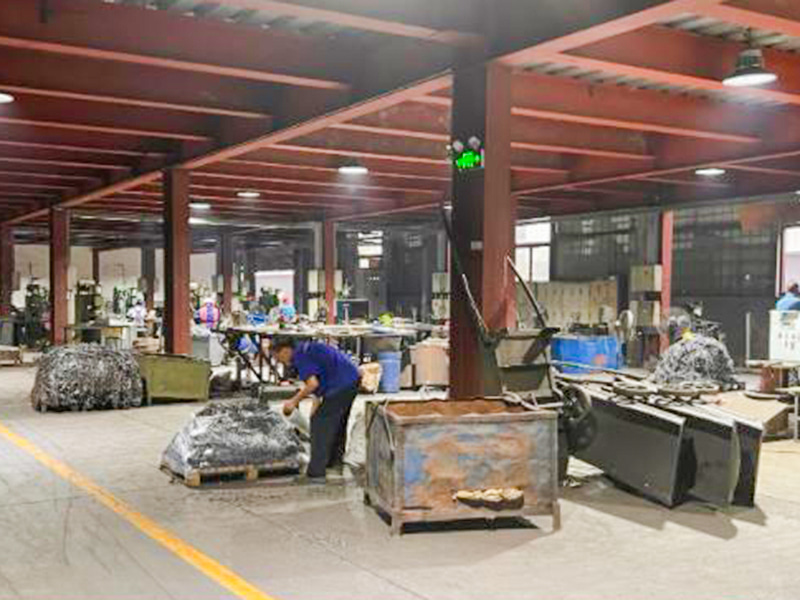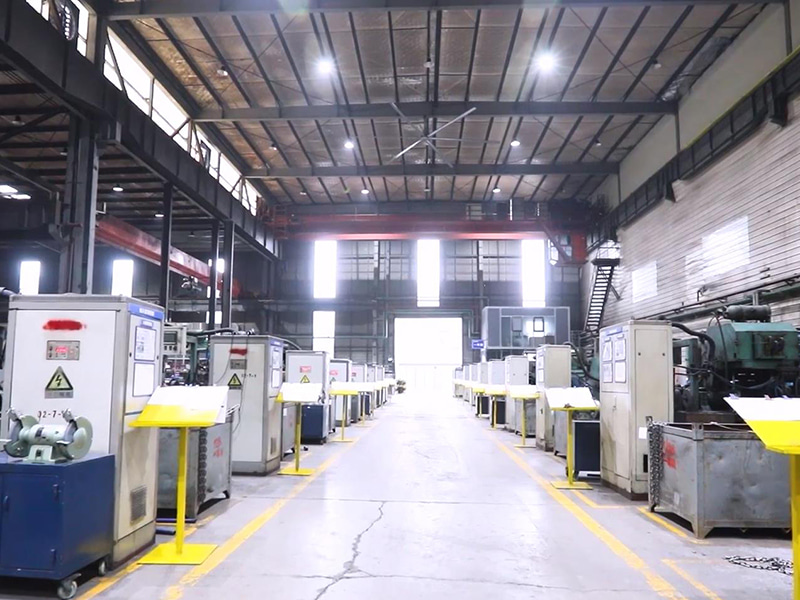Strength and Durability of Welded Chain: Key Factors in Material Selection and Quality Control
The strength and durability of welded chain are at the core of its performance, directly related to its safety and lifespan. As a professional China Welded Chain Manufacturer and Custom Welded Chain Factory, Shanghai TCH Metals & Machinery Co., Ltd. understands that to produce high-quality welded chain, strict control must be maintained over two major areas: material selection and quality control.
1. Key Factor: Material Selection
The strength and durability of a welded chain depend first and foremost on its raw materials. Generally, high-quality welded chains are made from high-carbon steel or alloy steel.
High-Carbon Steel and Alloy Steel
- High-Carbon Steel (e.g., G70, G80): These steels have high tensile strength and hardness, allowing them to withstand greater loads. The high carbon content allows the steel to achieve excellent mechanical properties after heat treatment, making it an ideal choice for manufacturing heavy-duty welded chains.
- Alloy Steel: By adding alloying elements such as manganese, chromium, and nickel to the steel, its toughness, wear resistance, and corrosion resistance can be further improved. For example, G80-grade alloy chain used for lifting is highly favored for its high strength and reliability.
Surface Treatment
In addition to the steel itself, the surface treatment of the welded chain is also crucial. For example, galvanizing, chroming, or powder coating can effectively prevent the chain from rusting, extending its service life, especially in humid or corrosive environments.
2. Key Factor: Quality Control
Simply choosing good materials is not enough; strict quality control during the production process is the key to ensuring the performance of the final product. As an industry leader, Shanghai TCH Metals & Machinery Co., Ltd. ensures the quality of its products through the following aspects:
State-of-the-Art Processes
- Automated Production and Precision Welding: The company uses advanced manufacturing facilities and automation technology to ensure the dimensional accuracy of every chain link and the strength of every weld point. High-quality welding is the foundation for ensuring the overall strength of the chain; any single weak weld point could lead to catastrophic failure.
- Heat Treatment Process: After welding, the chain needs to undergo a heat treatment process to relieve welding stress and optimize its mechanical properties. This process can significantly increase the chain's hardness, strength, and toughness, enabling it to withstand greater impact and loads.
Rigorous Testing and Inspection
Before leaving the factory, every batch of welded chain undergoes a series of rigorous tests.
| Test Type | Purpose |
| Tensile Testing | This is the most fundamental test used to verify the chain's ultimate tensile strength, ensuring it meets or exceeds industry standards. |
| Fatigue Testing | This simulates repeated loads the chain experiences during actual use to evaluate its durability and lifespan. |
| Dimensional and Visual Inspection | Ensures that every chain link's dimensions comply with standards and that there are no surface defects like cracks or pores. |
By making professional judgments in material selection and maintaining a rigorous attitude towards quality control, Shanghai TCH Metals & Machinery Co., Ltd. ensures that every welded chain it produces possesses outstanding strength and durability, thereby earning the trust of its customers.

 English
English Español
Español Deutsch
Deutsch 日本語
日本語